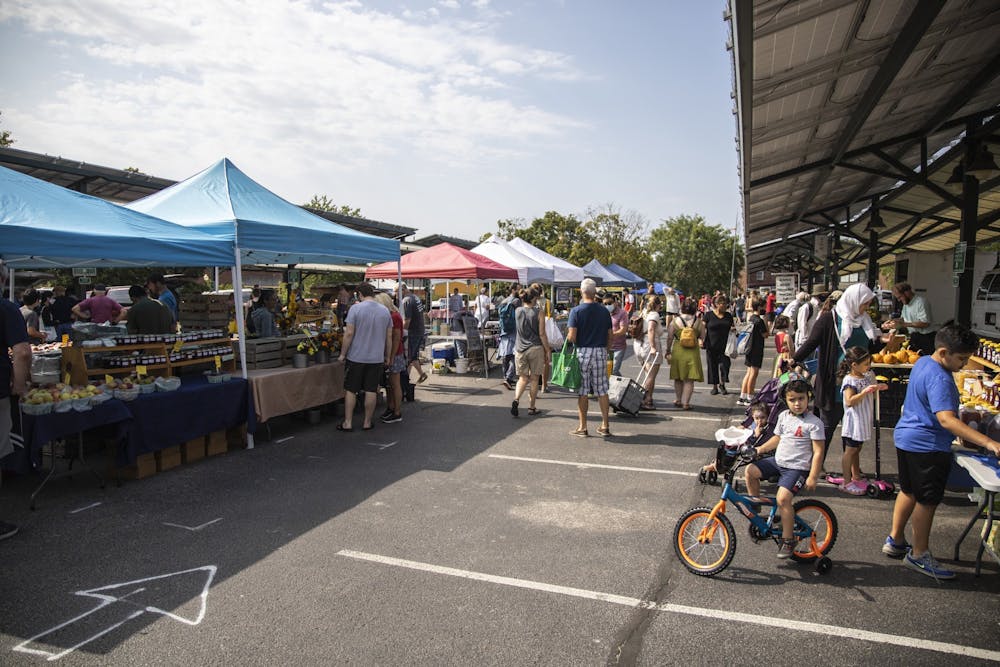Local farmers’ relationship to restaurants became restricted due to the COVID-19 pandemic, causing many farmers to sell fewer products to eateries and more directly to consumers. The shift is in part due to staff shortages in the service industry, growing interest from consumers and labor shortages.
Elizabeth Jones, co-owner of local farm Stranger’s Hill Organics, said the farm has sold to restaurants in the past but not during this season, citing labor shortages and lower production as a result.
“We are coming to the end of this season,” Jones said. “I am just not sure what things will be like next year. I sure hope we can get better and get more help.”
Jones also said she thinks many people aren’t going to restaurants because they learned how to cook over the pandemic and are instead going to the markets to buy ingredients for meals.
Bloomington-based Wilderlove Farm also supplies to some restaurants, but co-owner Kyle Smith said the restaurants have had to scale back.
Smith said one of the restaurants his farm normally works with shortened its hours because of limited staff. As a result, the restaurant had to scale back what it was purchasing from Wilderlove. Smith said the labor shortage has had an effect on even a smaller business like his.
Wilderlove operates on less than an acre of land and has four employees. Smith said the smaller scale of the business helps keep costs down and allows them to focus on higher product quality and management so they can provide better produce for consumers.
“I think you are just naturally insulated from any sort of negative trend with the labor side of things,” Smith said about his farm’s business. “The other issue is, since we have a skeleton crew, if one of us goes down, that could be bad news, right? You wouldn’t have a big enough team to absorb one person.”
Smith said Wilderlove tried to pivot at the start of the COVID-19 pandemic to cater to consumers as much as possible. He opened an online store, started a delivery service and continued to sell at farmers markets, which Smith said makes up 80% of their sales. Smith said there were risks there too.
“You get a rainy Saturday or for whatever reason the market closes, that’s a big outlet,” he said about the possibility of losing his farmers market sales.
Smith said recognizing risks in his revenue stream and having protections in place is good, and direct-to-consumer sales naturally insulate from those risks. However, Smith said it is hard to grow and scale his business as a result.
“I think overall, the pandemic has helped us more than it hurt us, just financially,” Smith said.
Susan Welstand, better known as the Chile Woman and a vendor at The People’s Market, said business has improved for her over the past two years in online sales. Welstand said she used to ship pepper plants to restaurants across the country for chefs who were looking for unique varieties, but the pandemic has changed who buys from her business.
“During the pandemic, all those restaurants were shuttered,” Welstand said. “That was really weird. We were so used to packing plants for these customers, year after year after year.”
Welstand still receives orders from restaurants but beyond that she said they have seen an increase in home gardening orders this past year.
Welstand also said plant-based businesses had a surge in sales in 2020 due to peaked interest from customers.




